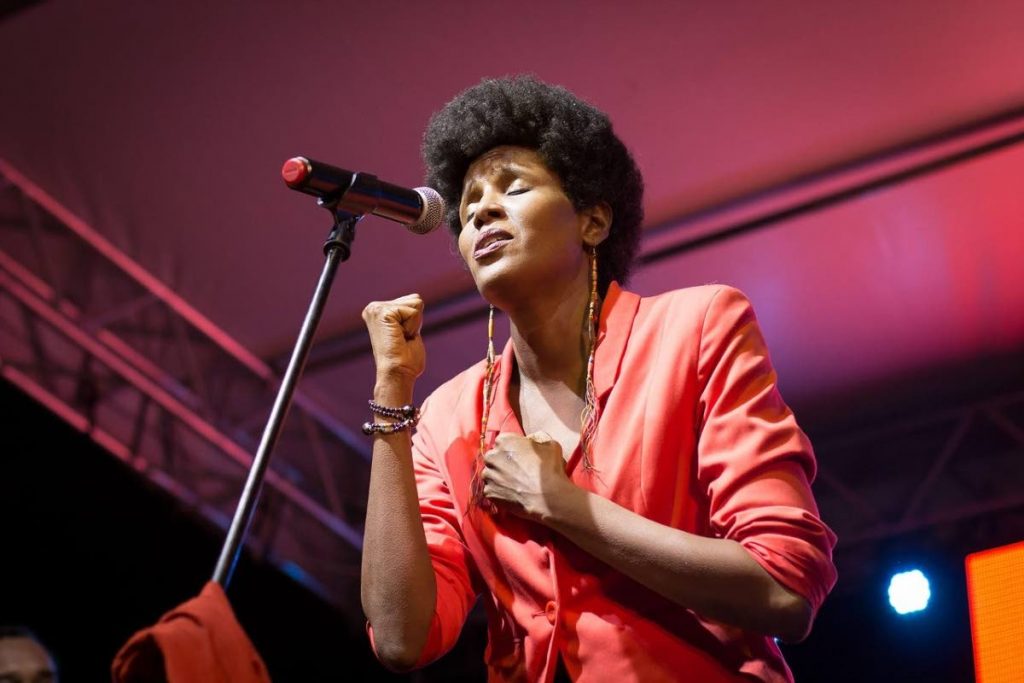Singer: Many people agree with police disadvantaging the poor

THERE are people in society who agree with the police giving an advantage to one group and disadvantaging another, said singer/songwriter Gillian Moor.
She was speaking on Tuesday during the UWI, St Augustine Cultural Studies Society De-Code Dialogue webinar on the topic of decoding human rights.
She said in TT the justice system benefited some while it criminalised others.
During the webinar a video of Moor's song Big Snake (War on Crime), which was about the 2002 anti-crime plan called Operation Anaconda, was played. She recalled during the exercise police rushed into neighbourhoods, made residents lie on the ground, and roughly searched them.
"You did not see that in wealthy communities. There was the assumption that those (in poorer communities) were involved in criminality, though this was not based on whether they were actually involved in crime (or not)."
Moor said there was injustice, with police giving an advantage to one set of people while disadvantaging another.
"Many people feel the system is just and correct as it is. (For) the people who face tougher treatment from the police, there is the assumption of guilt, and that they deserve what they get."
She said when people think about crime, the face they see on the news is a low-level criminal and not one who is in a position to import guns or drugs or finance containers of illicit substances. She added, however, that people on the higher levels of crime are hidden and those on the lower levels perceived as most likely to be involved in crime.
Moor said the roots of this system lay in colonialism and slavery, when people were viewed as inferior, despite science disproving it.
"Some people cling to it and internalise the narrative. And this causes suffering and takes away all of our humanity."
She said there is a belief that privilege is earned or deserved and the higher class is inherently more moral.
"It is easy to believe that when you are in a place of privilege."
Moor said the education system, for example, rewarded those who already have advantages and added opportunities to it.
"We celebrate their success without acknowledging they had a head start."
She said on the other side there were children without advantages – no stable home, lack of access to transport, WiFi, tutoring, a community that prizes education – that are not provided with educational support.
"Why do we accept a system like this? We acknowledge the failure of some children and prize the 'bright ones.' We give resources to a few and abandon some of them instead of supporting them and giving equal opportunity to all people. This shouldn't be a radical idea."
She asked rhetorically how much human potential is lost because of this system.
Former executive director of the Caribbean Centre for Human Rights and Industrial Court member Elizabeth Solomon, in her presentation, said human rights was not just a legal concept but should be used in the development of policy and affect how businesses operate.
"It undermines dignity if we only define it by what rights exist in law."
She said people's humanness defines their human rights and that cannot be changed. She added people should be treated with dignity despite their race, disability or if they love someone with the same genitals.
"The State has to guide citizens to respect each other's rights."


Comments
"Singer: Many people agree with police disadvantaging the poor"